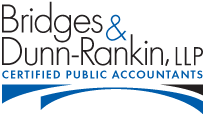IRC 1202 Capital Gains Exclusion – Almost too Good to be True
By Kenneth H. Bridges, CPA, PFS December 2019
Generally, when something sounds too good to be true, that’s because, in fact, it is not true. An exception to that general rule is the IRC 1202 capital gains exclusion.
Internal Revenue Code Section 1202 provides that for C-corp stock in a qualifying business received after September 27, 2010 and held for at least 5 years, the selling shareholders can enjoy a 100% capital gains exclusion on up to the greater of $10,000,000 (per shareholder limit at individual shareholder level) or 10 times the amount invested in the stock. Thus, in the right set of circumstances, it may be possible to sell C-corp stock without incurring any tax on the gain.
In order for the C-corp stock to qualify, the corporation must be conducting an active business and cannot be in a disqualified industry (performance of services in the fields of health, law, engineering, architecture, accounting, actuarial science, performing arts, consulting, athletics, financial services, or brokerage services, or in banking, insurance, financing, leasing, investing, farming, natural resources, hotels and restaurants). Also, the company must not have had (at the time of issuance of the stock and essentially at all times before that) assets in excess of $50,000,000.
For C-corp stock acquired between August 10, 1993 and September 26, 2010, a 50% or 75% exclusion may apply, in lieu of the 100% exclusion.
Kenneth H. Bridges, CPA, PFS is a partner with Bridges & Dunn-Rankin, LLP, an Atlanta-based CPA firm.
This article is presented for educational and informational purposes only, and is not intended to constitute legal, tax or accounting advice. The article provides only a very general summary of complex rules. For advice on how these rules may apply to your specific situation, contact a professional tax advisor.
